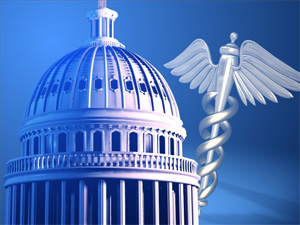July 4, 2012
 News that the Supreme Court left standing the major provisions of the health care overhaul means that many of the changes that have taken place and that are slated to take place in the coming years will continue to roll ahead. Still, many people remain confused about what health care reform means for them and for older Americans in general, including many facing the challenges of Alzheimer’s disease for themselves or loved ones.
News that the Supreme Court left standing the major provisions of the health care overhaul means that many of the changes that have taken place and that are slated to take place in the coming years will continue to roll ahead. Still, many people remain confused about what health care reform means for them and for older Americans in general, including many facing the challenges of Alzheimer’s disease for themselves or loved ones.
The Affordable Care Act, championed by President Obama and passed by Congress in 2010, included several provisions that affect Medicare, the government program that guarantees health care to seniors. Included in the act were various provisions that took affect with the Act’s passage, which will continue uninterrupted as a result of the Court’s ruling. Among them:
*An Annual Wellness Visit.
The Affordable Care Act was designed to make preventive care easier to access, and since the Act’s passage, Medicare beneficiaries are now entitled to a free wellness exam each year. More than 2 million seniors took advantage of the wellness visit last year, according to AARP (American Association of Retired Persons); still, many seniors do not know that the free service is available. Also part of the Act is a free “Welcome to Medicare” doctor visit. And since it can be hard to find a doctor who has an available appointment, the Act provides a bonus incentive to primary care doctors who accept Medicare.
* Preventive Screenings
The health care reform focus on preventive services also encouraged seniors to work with their doctors to design a plan aimed at heading off disease, including a range of preventive services that did not require any out-of-pockets costs. Under the Affordable Care Act, Medicare fully covers screenings like mammograms, pap smears, bone scans, and depression and diabetes screenings. Many of these preventive services used to require deductibles but no longer do.
*Greater Prescription Drug Coverage
Seniors taking medications for Alzheimer’s and other ills often faced the “doughnut hole” that requires full payment for any medications after a limit (currently $2,930) is reached. The Affordable Care Act increases reimbursements for brand name and generic drugs and gradually phases out the dreaded “doughnut hole” completely by 2020.
*Long-Term Care
The Court’s decision preserves several programs designed to help elderly and disable people stay in their homes, rather than moving to nursing homes. The Community First Choice Option from Families USA, for example, aids states by providing additional funding to allow in-home assistance with activities of daily living and other chores.
*Medicaid
Starting in 2014, the Affordable Care Act will help husbands and wives hold onto more of their assets if a spouse must spend most of their money and assets to qualify for Medicaid, the government program for low-income individuals. Less certain is the ruling’s effect on the millions of younger (ages 50 to 64) and disabled Americans who rely on Medicaid, since the Court ruled that the government cannot force states to expand Medicaid services.
Many of the upcoming changes in the Affordable Care Act will happen automatically, so seniors don’t need to register or fill out special forms.
By ALZinfo.org, The Alzheimer’s Information Site. Reviewed by William J. Netzer, Ph.D., Fisher Center for Alzheimer’s Research Foundation at The Rockefeller University.











